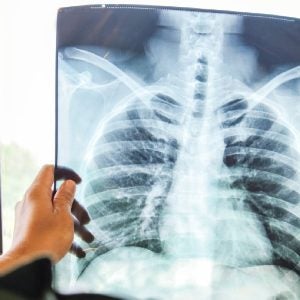
Johnson & Johnson (J&J) has received the US Food and Drug Administration (FDA) approval for its Imaavy (nipocalimab-aahu) to treat generalised myasthenia gravis (gMG).
Imaavy is a monoclonal antibody designed to block FcRn with high affinity and reduce levels of circulating immunoglobulin G (IgG) antibodies, without affecting other immune functions.
The drug is currently approved to treat gMG in adults and children, aged 12 years and above, who are AChR or MuSK antibody positive.
The approval follows the FDA Priority Review and provides a new treatment option in a proven class with potential for sustained disease control for individuals with gMG.
GMG is a chronic, debilitating autoantibody disease, where there is a significant unmet need for additional effective therapies with demonstrated safety profiles.
Johnson & Johnson Innovative Medicine global immunology therapeutic area head David Lee said: “Today’s FDA approval of IMAAVY marks a historic milestone for the more than 240 million patients suffering with autoantibody diseases, many with few or no approved targeted treatments.
“This approval is the result of years of scientific commitment, collaboration and determination for our nipocalimab program, and we’re proud to bring this new treatment option to patients living with anti-AChR or anti-MuSK antibody positive gMG.”
The FDA approval is backed by data from the pivotal Vivacity-MG3 study, which is the longest primary endpoint of a registrational trial for any FcRn blocker in adults with gMG.
The study results show that Imaavy plus standard of care (SOC) provided superior disease control over 24 weeks compared to placebo plus SOC, as measured by the MG-ADL score.
Imaavy demonstrated a rapid and sustained reduction in autoantibody levels by up to 75% from the first dose over a 24-week monitoring period.
In the Phase 2/3 Vibrance paediatric study, Imaavy plus SOC met its primary endpoint with a 69% reduction in total serum IgG in adolescents aged 12-17 years, over 24 weeks.
Secondary endpoints showed improvements in Myasthenia Gravis-Activities of Daily Living (MG-ADL) and Quantitative Myasthenia Gravis (QMG) scales.
Imaavy has shown a consistent safety profile across both the Vivacity-MG3 and Vibrance-MG studies, with similar tolerability in adult and paediatric populations.
University of Buffalo professor of neurology Nicholas Silvestri said: “The clinical results we’ve seen with Imaavy represent a significant milestone in the treatment of gMG.
“Patients experienced substantial symptom relief and lasting disease control that translated into better daily function and did not fade over 24 weeks in the pivotal Vivacity-MG3 study.
“Having a treatment that delivers this level of durable symptom stability is a meaningful step forward for managing a complex and unpredictable disease like gMG, and to have it in both AChR+ and MuSK+ adults and paediatric patients 12 years and older brings an additional FcRn treatment to a broader range of patients.”






